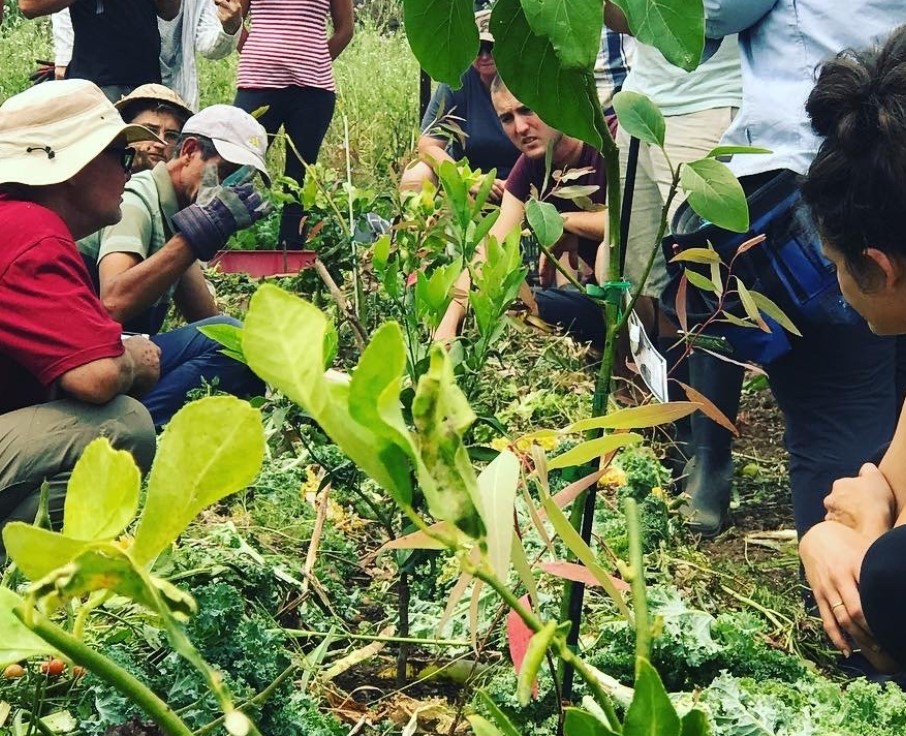By Tim Scott
We all hear that to feed 9 billion humans, the expected world population by 2050, we need to increase food production by 60% from current levels.*
A rising population, along with a new problem; a backdrop of ESG and environmental targets around carbon emissions (as one example) by corporations who don’t understand the basic “non-tradeoff” premise of Regenerative Agriculture, have all resulted in more land being taken out of agriculture for “livestyle” and for “environmental” pursuits meaning less and less quantity and quality of arable land for food production.
Even in our local case, our farms have over 40 neighbours and I’d consider just one or two to be full-time farmers. At best that’s 20:1! Of these, neither actually produce a final product – consumable food available to eat now. Nothing wrong with that of course, but scale it across the country and across the world and “Huston we have a problem”!
How then are we feeding everyone that’s here now – let alone the hoards that are coming?
Industrial Farming of course! Well actually no; 70% of the world’s food currently comes from local, small scale farming systems. The Scientific American Magazine quotes that Industrial Ag has actually lead to a 60 fold DECREASE in productivity.**
Productivity is a measure of Output per unit of Input. The more inputs, the lower the productivity. An industrial food system requires 300 units of inputs to produce 100 units of outputs whereas a polyculture, local food system requires as little as 5 units of inputs to produce the same 100 units of outputs!**
A high yield means nothing if the cost (monetary, environmental, social and intergenerational) is proportionately higher to produce that yield.
Put from an energy efficiency perspective, Industrial Ag uses 10Kcal of energy inputs to produce 1Kcal of food energy.** That’s pretty bad! Further depleting the myth, industrial breeding- think GM crops, plant and animal varieties reliant on synthetic nutrition and chemical protection – are actually leading to a less resilient food system and ultimately reduced food security- not improving it.
Industrialisation of our food is however creating some pretty powerful “mega corporations” that own the technology and supply the inputs of mass food production internationally. There are very few of these and they hold a lot of power as, after all, food (and water) are really the only necessities of life.
In some ways our beautiful area with it’s 8000+ small farms (in about a 150km radius)*** is at the pointy end of this problem. We’ve already seen highly functional regenerative food producing farms in the GRC council area shut down to be planted out to trees to offset corporate impact thousands of kilometers away and we see a dominant trend of food producing farms converted to lifestyle blocks or non-food production uses.
The experience of other regen farmers with this council, and others nearby, is that approvals around multi-species, enterprise stacked and value added food production enterprises here is a minefield Vs having a “conventional” degenerative farm, lifestyle block or land bank running a few cows to avoid land tax. Why is this and don’t planning priorities need to change to face the reality of the impending food crisis?
Shouldn’t agroecological practices be promoted in our #RegenRegion as that’ll give the best outcome for all? Shouldn’t any land use that doesn’t produce actual food in our high rainfall, high productivity area be highly scrutinized and application be made to take it out of food production. Shouldn’t everyone be encouraged to produce a range of foods and remove the inputs (synthetics) that threaten productivity from public and private land?
As we move into another year, getting closer to the 2050 peak population; when do you think is it time for action on food security? When do we stop adding to the problems of land degradation, urbanisation, chemicalisation and disconnection with our environment? Or do we revert to the norm of supporting the centralised, industrialised supermarket food system that’s become so dominant and so destructive to food security. So this Christmas have a think about who is REALLY feeding the world, and support them – it may eventually be the difference.
*https://www.scientificamerican.com/article/climate-change-brews-perfect-storm-of-food-woes/
** “Who Really Feeds the World”, Shiva, 2015.
***DAF figures 2019
